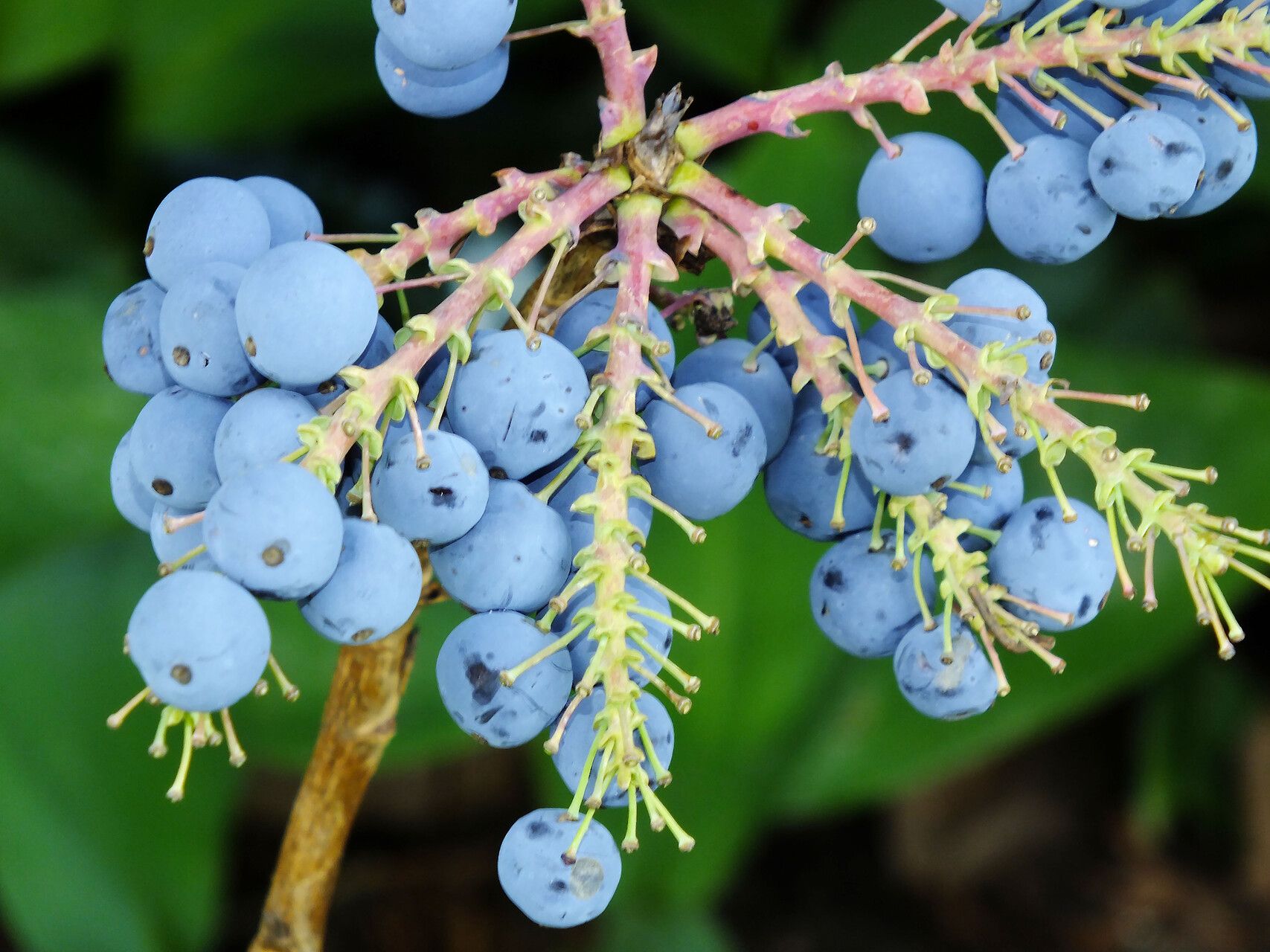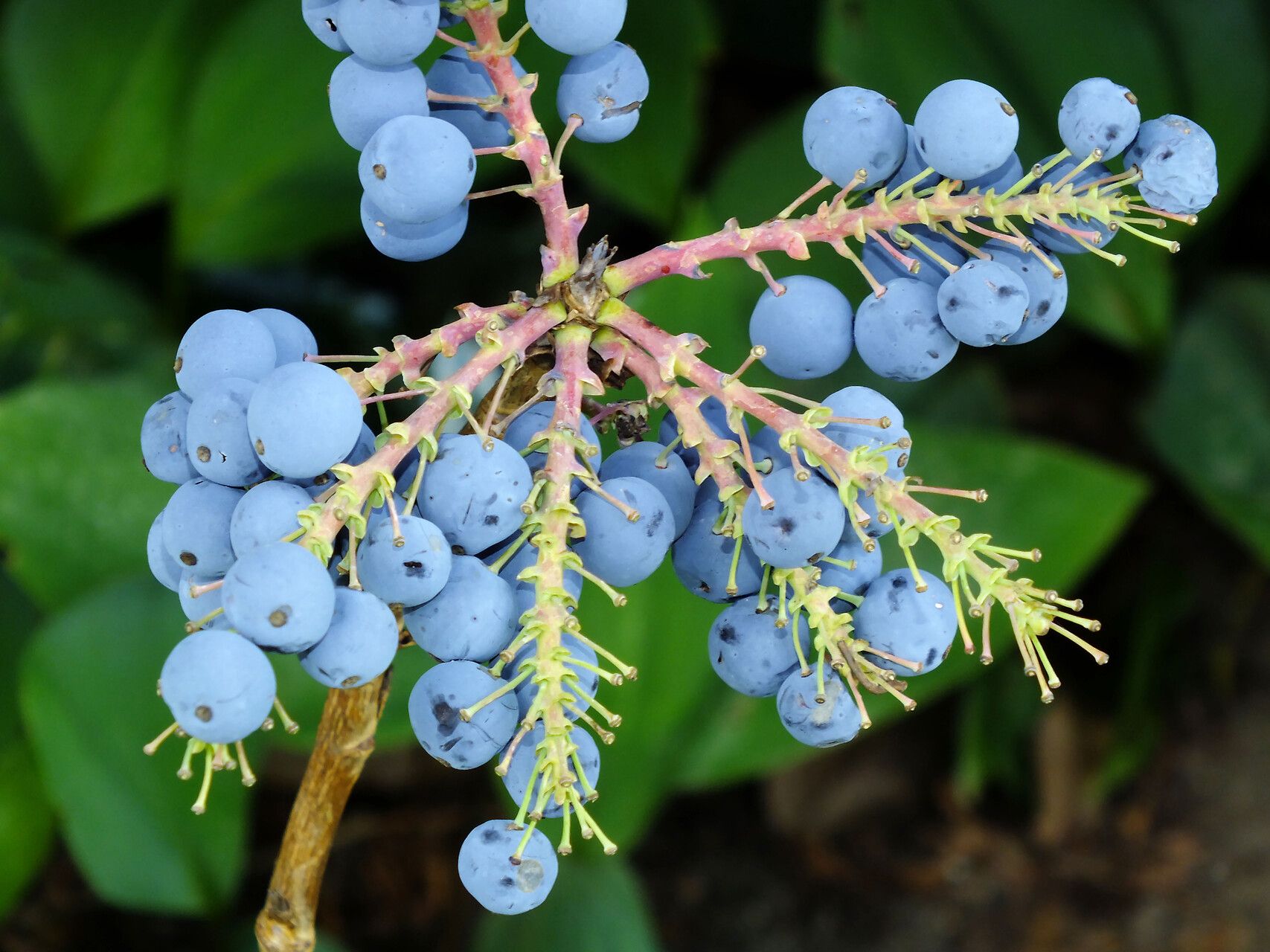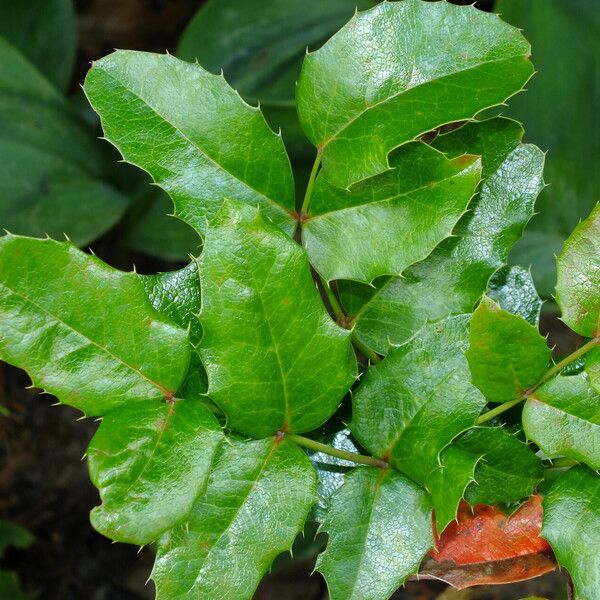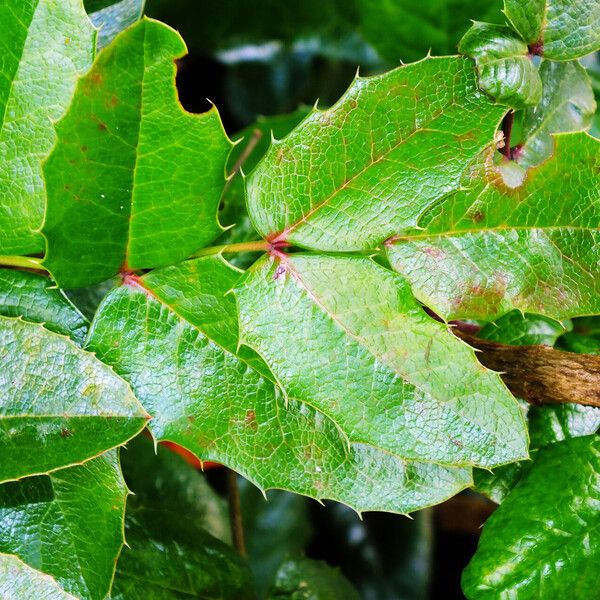StebėjimasBerberis aquifolium Purshobserved byA Andrzej KonstantynowiczAndrzej Konstantynowicz2024 m. liepos 8 d.
Andrzej KonstantynowiczAndrzej Konstantynowicz2024 m. liepos 8 d.
observed by Andrzej KonstantynowiczAndrzej Konstantynowicz
Andrzej KonstantynowiczAndrzej Konstantynowicz
A
2024 m. liepos 8 d.
Nustatymas
Proposed determination
Suggest another determination
You don’t agree with the suggested species but don’t have another suggestion
Komentarai
Papildoma informacija
Sukūrimo data
2024 m. liepos 19 d.
Paskutinį kartą peržiūrėta
2024 m. liepos 19 d.
Łódź, Botanical Garden
Synonym 'Berberis fascicularis', 'Mahonia aquifolium'.
It is native and relatively common in western North America, from Alberta south through California into northern Mexico.
Ornamental plant.
Edible plant - fruit raw or cooked, can also be dried and stored for later use; flowers raw, they can also be used to make a lemonade-like drink.
Herbal plant - was often used by several North American Indian tribes to treat loss of appetite and debility (!); roots and their bark are alterative, antibacterial, antioxidant, blood tonic, cholagogue, diuretic, laxative and tonic; is taken internally in the treatment of psoriasis, syphilis, haemorrhages, stomach complaints and impure blood conditions; externally, it is used in the form of a cream to treat skin conditions such as psoriasis, whilst a decoction has been used as a gargle for treating sore throats and as a wash for blurry or bloodshot eyes; fruits are an excellent gentle and safe laxative.
Usable plant - can be grown as a low hedge that does not need trimming; a yellow dye is obtained from the inner bark of the stem and roots; dark green, violet and dark blue-purple dyes are obtained from the fruits; a green dye is obtained from the leaves.
Shared in
Grupės (15)







